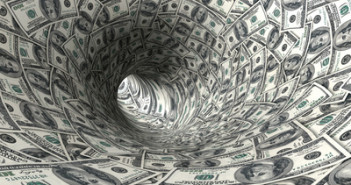- More and more warnings about trade abound, but markets take things with a stride.
- Powell said that the Fed continues raising rates for now. “For now” may apply to market calm.
- Our third tranche of Trade War from the Trenches discusses the calm that may precede a storm.
No news is good news. The old saying is relevant to markets when talking about trade. The previous week saw the US announcement about new tariffs on China, on a whopping $200 billion worth of goods. The implementation is due at the end of the summer which is the eternity for financial markets. The news stole the show from trade tensions between the EU and the US around the NATO Summit. Negotiations between the European Union and the US will commence next week.
The only news that came out on trade does not involve the US, making it a positive piece. The EU and Japan signed a free trade agreement. The deal now awaits a ratification process which may last years. The accord does not have any immediate, practical outcomes. Nevertheless, the political message from both allies of the US is clear: they will continue pursuing lower tariffs and free trade.
Despite the lack of any significant developments, many prominent influencers have voiced their opinions.
Fed Chair Jerome Powell was upbeat about the accelerating economy, the robust job market that draws previously discouraged people, and the gradual rise in inflation. He tried not to touch the politically explosive topic of trade, but he gave in his views. Answering questions, Powell said that lower tariffs are better than higher ones. He also gently mentioned that uncertainty is postponing business decisions.
The International Monetary Fund (IMF) released a report saying that Trump’s trade wars could cost the global economy some $430 billion and that the US could find itself as the “focus of global retaliation.” They also said that the expansion is becoming less even, and risks to the outlook are mounting.
European Union President Donald Tusk issued a stark warning saying that trade wars can lead to “hot conflicts.” He also called the other Donald, US President Donald Trump, to reform the world order rather than bring it down.
Citi, a prominent bank, calls Trump’s trade policies “brutal” and “neo-mercantilist.” They also said that the unilateral action had punctured the good faith built up over the years. Their silver lining is that Trump will change tack after the mid-term elections in November.
The list, only from the last few days, goes on and on. It includes the World Bank, former Treasury Secretaries Paulson, and Geithner, Blackrock’s Larry Fink, and you name it.
Yet markets are calm
The dogs bark and the caravan moves on.
Stock markets dip on each significant piece of worrying news and the “buy the dip” mentality returns quite quickly. Minor news and warnings about trade have a diminishing impact. What cannot fall on bad news, is bound to rise.
Apart from Chinese equity markets, global stocks are looking good. The current situation is still OK. But the storm is undoubtedly brewing. Timing is everything in markets and a crash may be imminent or may wait forever. As John Maynard Keynes said:
The market can remain irrational longer than you can remain solvent
We have seen one significant change in behavior: the US Dollar has become the ultimate safe-haven, dethroning the yen.
When market behavior and correlations change, is it a sign of a more significant move to come?
With the damage already done by some tariffs and the postponement of investment decisions, something will have to happen: either Trump backs down, or markets fall. And with so many warnings from top economists and institutions, it is hard to see markets shrugging it off for a long time.
In economics, prophecies can sometimes fulfill themselves. Buyers still have the upper hand, but they may lose trust. When they pull the rug, it could get ugly.
More: Trade wars: Only a stock market crash can stop Trump, 3 reasons
